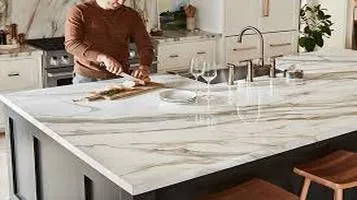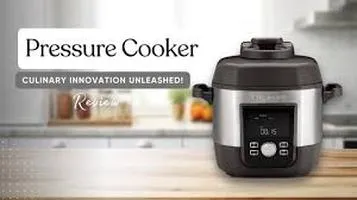Review of the Best Kitchen Countertop Materials
When selecting the best kitchen countertop materials, several options stand out due to their durability, aesthetics, and functionality. Granite remains a popular choice, known for its natural beauty, heat resistance, and unique patterns. Quartz, an engineered stone, offers a non-porous surface that resists stains and scratches, requiring minimal maintenance. Marble, with its elegant veining, adds a touch of luxury, though it requires more care due to its softness and susceptibility to staining. For a modern look, consider concrete, which can be customized with various stains and finishes. Lastly, butcher block countertops bring warmth and a rustic appeal, ideal for those who enjoy a natural, organic feel in the kitchen. Each material offers distinct advantages, catering to different styles and needs.

When it comes to kitchen countertops, the options are as varied as they are intriguing. The right countertop not only enhances the aesthetic appeal of your kitchen but also its functionality and durability. While personal preferences and budget constraints play a significant role in the decision-making process, understanding the pros and cons of popular countertop materials is essential. Below, we delve into some of the best kitchen countertop materials available, evaluating their attributes to help you make an informed choice.
1. Granite
Pros:
Granite countertops are renowned for their natural beauty and durability. Each slab is unique, offering a one-of-a-kind appearance that can significantly elevate the look of your kitchen. Granite is exceptionally hard and resistant to heat, scratches, and stains when properly sealed. It also adds value to your home, making it a popular choice for homeowners looking to invest in quality and longevity.
Cons:
Despite its many advantages, granite can be expensive and requires periodic sealing to maintain its resistance to stains. It is also heavy, necessitating sturdy cabinetry for support. Moreover, the installation process is complex, often requiring professional assistance.
2. Quartz
Pros:
Quartz, an engineered stone composed of natural quartz crystals and resin, offers the best of both worlds: the beauty of natural stone and the durability of modern manufacturing. It is non-porous, making it highly resistant to staining and bacterial growth. Quartz countertops are available in a wide array of colors and patterns, including some that mimic the look of granite and marble. They are also relatively low-maintenance, requiring no sealing.
Cons:
Quartz can be quite expensive, often rivaling the cost of high-end granite. While it is heat-resistant, excessive heat can cause damage, meaning you should avoid placing hot pots and pans directly on the surface. The seams in quartz countertops can also be more noticeable compared to natural stones.
3. Marble
Pros:
Marble countertops exude luxury and timeless elegance. Known for their stunning veining and classic appeal, they are a favorite in high-end kitchen designs. Marble is also heat-resistant, which is beneficial for avid bakers who work with dough and pastries.
Cons:
Marble is more porous and softer than granite and quartz, making it susceptible to scratches, stains, and etching from acidic substances like lemon juice and vinegar. It requires regular sealing and meticulous maintenance to preserve its beauty. Additionally, marble is one of the more expensive countertop options.
4. Butcher Block
Pros:
Butcher block countertops bring a warm, rustic charm to the kitchen. They are ideal for food preparation, particularly for chopping and cutting, as the wood surface is gentle on knife blades. Butcher block is also relatively affordable and can be sanded down to remove scratches and dents, allowing for easy repairs.
Cons:
Wood is porous and can harbor bacteria if not properly maintained. Butcher block countertops require regular oiling to prevent drying and cracking. They are also susceptible to water damage and can stain easily, necessitating prompt cleaning of spills.
5. Solid Surface
Pros:
Solid surface countertops, made from a blend of acrylic and polyester resins, offer a seamless look and are available in a variety of colors and patterns. They are non-porous, making them resistant to stains and easy to clean. Minor scratches and damage can be sanded out, and the material allows for integrated sinks and backsplashes, enhancing the overall aesthetic.
Cons:
Solid surface countertops can be damaged by heat and are not as scratch-resistant as natural stone options. They also tend to be less durable in the long term compared to granite or quartz.
6. Laminate
Pros:
Laminate countertops are a budget-friendly option available in an extensive range of colors and styles, including designs that mimic the appearance of natural stone and wood. They are lightweight, easy to install, and low-maintenance, making them a practical choice for many homeowners.
Cons:
Laminate is less durable than other materials and can be damaged by heat and sharp objects. It is also prone to scratching and chipping, and once damaged, it is difficult to repair. The seams in laminate countertops can be more visible, and the material does not add the same level of value to a home as natural stone or quartz.
Conclusion
Choosing the best kitchen countertop material depends on your individual needs, preferences, and budget. Granite and quartz are excellent choices for those seeking durability and luxury, while marble offers unmatched elegance at a higher maintenance cost. Butcher block provides a warm, rustic feel but requires regular upkeep. Solid surface countertops offer seamless aesthetics and easy maintenance, while laminate stands out as a cost-effective, versatile option. By weighing the pros and cons of each material, you can select the perfect countertop that complements your kitchen’s style and meets your functional requirements.






